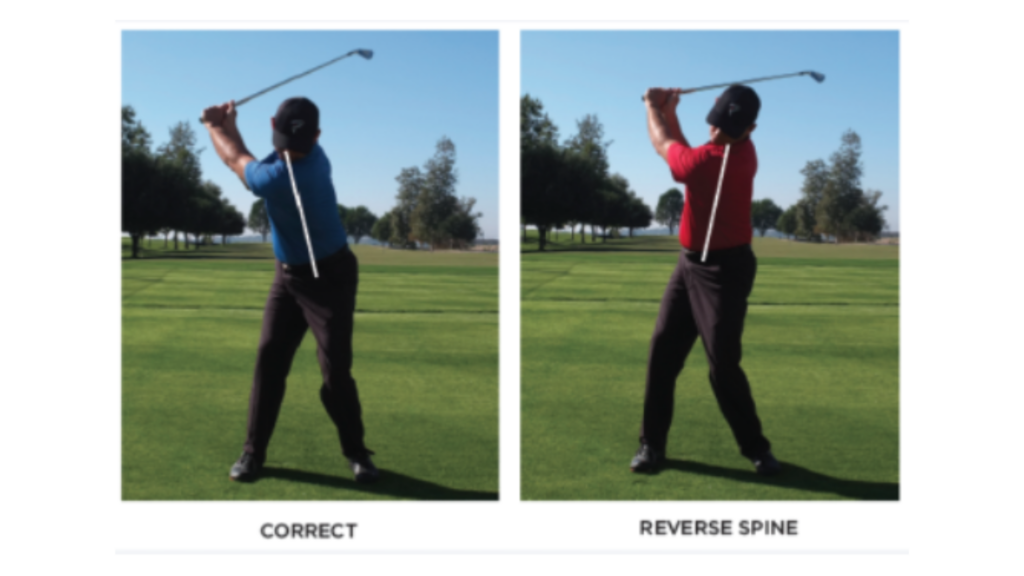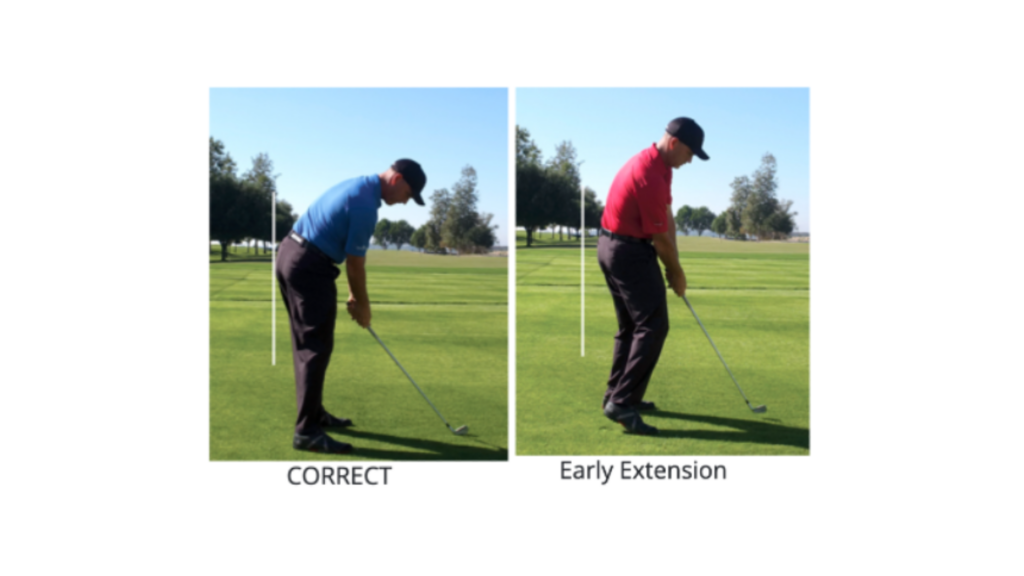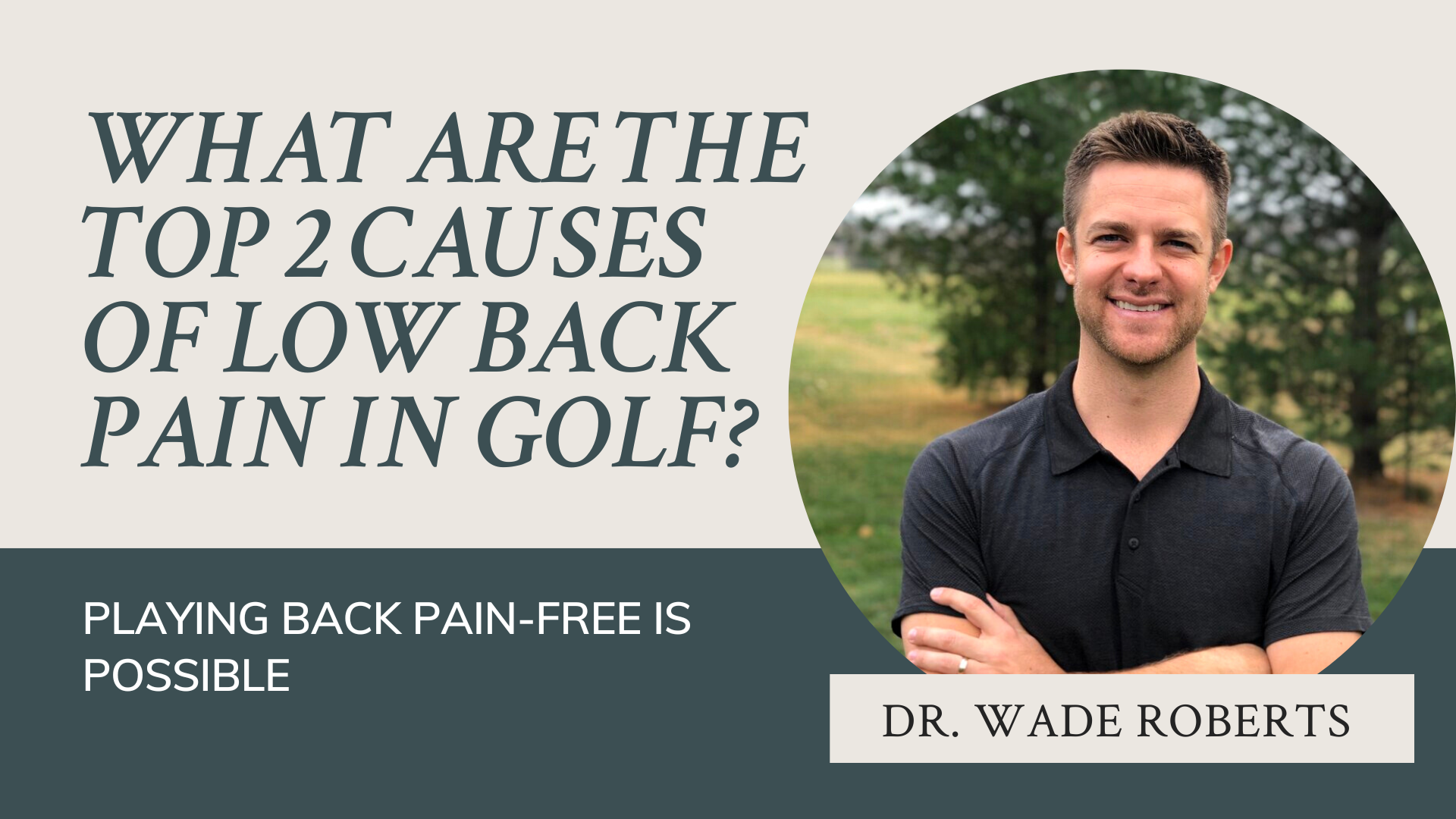- Reverse spine angle

A Reverse Spine Angle is any excessive upper body backward bend or excessive left lateral (for right-handed golfers) upper body bend during the backswing. This positioning produces an excessive amount of torque and pressure on the low back on the downswing due to the chest having to travel ‘farther’ and ‘faster’ to get back down to impact. Any time you increase the speed or force forward bending with rotation at the same time…that’s a good recipe for back pain.
2. Early extension

Early extension occurs when the hips and spine of a golfer start to go into extension or straighten up too early on the downswing. In this impact position, your core and gluteal (butt) muscles are in a poor position to properly ‘engage’ and are what we call, inhibited. Similar to Reverse Spine Angle, anytime you have rapid rotation of the body with no core engagement, that’s a good recipe for back pain. This is also the number one cause of a shank as your hips have now actually moved closer to the ball minimizing the space for your hands.
Ask one of your playing partners next time you golf to take a video of your swing and see for yourself (if you don’t know already) if you possess these characteristics.
How do you improve these positions? Almost always it’s a lack of proper mobility in really 4 areas of your body. I tell my golfers that if you can’t clear a full range of motion here, then your body will ‘work around’ those limitations and often manifests itself as described in the pictures above. I’ve put together a brief video for you to check for yourself at home how well you move in those 3 areas. Check out the home assessment here >>
Playing back pain-free is possible!
Hit em’ straight,
Dr. Roberts
Click Here to Set Up a Call
Dr. Wade Roberts is a contributing writer for Central Links Golf. Dr. Roberts is the owner of Roberts PT, a golf PT and Performance Center in Kansas City. He graduated from Liberty University with a Bachelor of Science Degree in Kinesiology. He then earned his Doctor of Physical Therapy from Lynchburg College. Dr. Roberts is able to provide specialized therapies for a variety of patients but has a special interest in decreasing pain, increasing speed, and achieving longevity in the golf community
